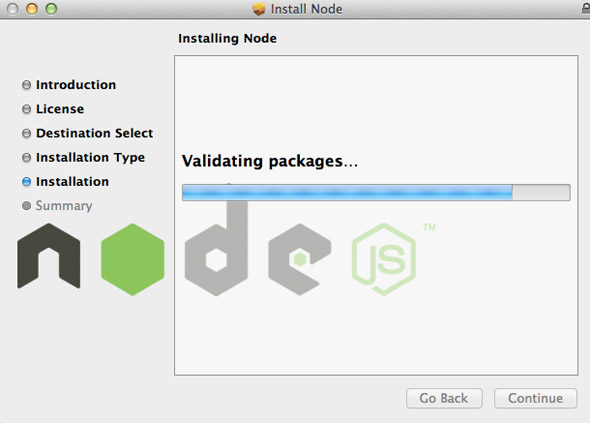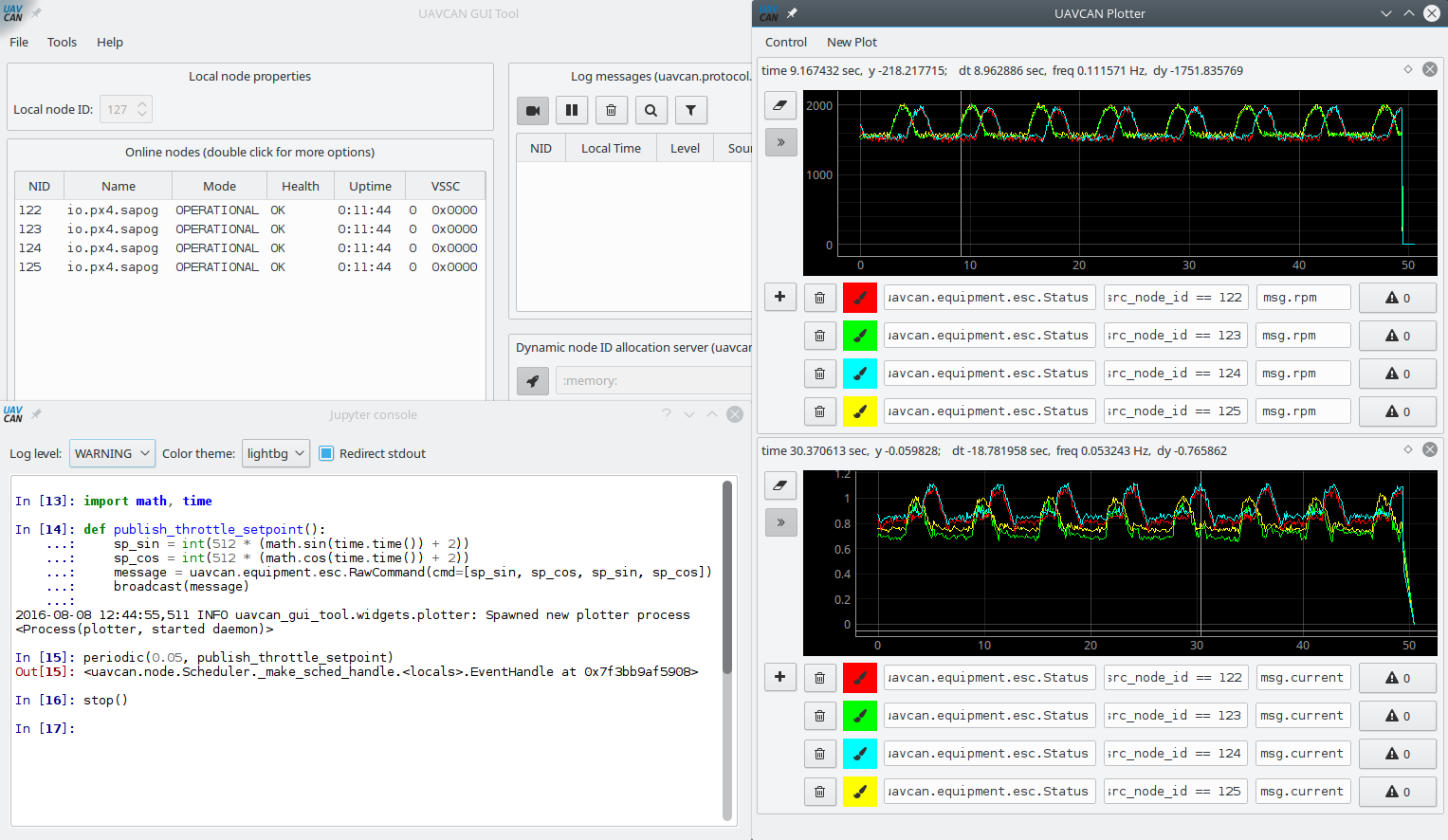- 📟 Learn to build Node.js CLI 🆚 Become a VSCode Power User; Go; 2 Min Read; May 23, 2018; Install Go Lang on MacOS with Homebrew! I’ve started learning Go lang. It seems to be built by the right people with the right expectations. So, the first thing I did was install go on Mac with Homebrew.
- Thanks for contributing an answer to Stack Overflow! Please be sure to answer the question.Provide details and share your research! Asking for help, clarification, or responding to other answers.
- Ship to systems without Node or NPM - No need to NPM install dependencies, bundle everything in a single executable. Dictate Node version - Force a certain version of Node to guarantee feature support. Prevent commercial application from being nulled - It is not as easy anymore as commenting out, replacing or removing the license validation.

Note: The packages on this page are maintained and supported by their respective packagers, not the Node.js core team. Please report any issues you encounter to the package maintainer. If it turns out your issue is a bug in Node.js itself, the maintainer will report the issue upstream.
Exit status 1 npm ERR! Failed at the v8-debug@0.4.6 install script 'node-pre-gyp install -fallback-to-build'. This is most likely a problem with the v8-debug package, npm ERR! Not with npm itself. Tell the author that this fails on your system: npm ERR! Node-pre-gyp install -fallback-to-build npm ERR!
Android
Android support is still experimental in Node.js, so precompiled binaries are not yet provided by Node.js developers.
However, there are some third-party solutions. For example, Termux community provides terminal emulator and Linux environment for Android, as well as own package manager and extensive collection of many precompiled applications. This command in Termux app will install the last available Node.js version:
Currently, Termux Node.js binaries are linked against system-icu (depending on libicu package).

Arch Linux
Node.js and npm packages are available in the Community Repository.
CentOS, Fedora and Red Hat Enterprise Linux
Node.js is available as a module called nodejs in CentOS/RHEL 8 and Fedora.
where <stream> corresponds to the major version of Node.js.To see a list of available streams:
For example, to install Node.js 12:
For CentOS/RHEL 7 Node.js is available via Software Collections.
Alternatives

These resources provide packages compatible with CentOS, Fedora, and RHEL.
- Node.js snaps maintained and supported at https://github.com/nodejs/snap
- Node.js binary distributions maintained and supported by NodeSource
Debian and Ubuntu based Linux distributions
Node.js binary distributions are available from NodeSource.
Alternatives
Packages compatible with Debian and Ubuntu based Linux distributions are available via Node.js snaps.
Osx Install Node 11
fnm
Fast and simple Node.js version manager built in Rust used to manage multiple released Node.js versions. It allows you to perform operations like install, uninstall, switch Node versions automatically based on the current directory, etc.To install fnm, use this install script.
fnm has cross-platform support (macOS, Windows, Linux) & all poplar shells (Bash, Zsh, Fish, PowerShell, Windows Command Line Prompt)it's built with speed in mind and compatibility support for .node-version and .nvmrc files.
FreeBSD
The most recent release of Node.js is available via the www/node port.
Install a binary package via pkg:
Or compile it on your own using ports:
Gentoo
Node.js is available in the portage tree.
IBM i
LTS versions of Node.js are available from IBM, and are available via the 'yum' package manager. The package name is nodejs followed by the major version number (for instance, nodejs12, nodejs14 etc)
To install Node.js 14.x from the command line, run the following as a user with *ALLOBJ special authority:
Node.js can also be installed with the IBM i Access Client Solutions product. See this support document for more details
macOS
Download the macOS Installer directly from the nodejs.org web site.
If you want to download the package with bash:
Alternatives
Using Homebrew:

Using MacPorts:

Using pkgsrc:
Install the binary package:
Or build manually from pkgsrc:
n
n is a simple to use Node.js version manager for Mac and Linux. Specify the target version to install using a rich syntax,or select from a menu of previously downloaded versions. The versions are installed system-wide or user-wide, and for moretargeted use you can run a version directly from the cached downloads.
See the homepage for install methods (boostrap, npm, Homebrew, third-party), and all the usage details.
If you already have npm then installing n and then the newest LTS node version is as simple as:
NetBSD
Node.js is available in the pkgsrc tree:
Or install a binary package (if available for your platform) using pkgin:
Nodenv
nodenv is a lightweight node version manager, similar to nvm. It's simple and predictable. A rich plugin ecosystem lets you tailor it to suit your needs. Use nodenv to pick a Node version for your application and guarantee that your development environment matches production.
Nodenv installation instructions are maintained on its Github page. Please visit that page to ensure you're following the latest version of the installation steps.
Osx Install Node Brew
nvm
Node Version Manager is a bash script used to manage multiple released Node.js versions. It allowsyou to perform operations like install, uninstall, switch version, etc.To install nvm, use this install script.
On Unix / OS X systems Node.js built from source can be installed usingnvm by installing into the location that nvm expects:
After this you can use nvm to switch between released versions and versionsbuilt from source.For example, if the version of Node.js is v8.0.0-pre:
Once the official release is out you will want to uninstall the version builtfrom source:
OpenBSD
Node.js is available through the ports system.
Using pkg_add on OpenBSD:
openSUSE and SLE
Node.js is available in the main repositories under the following packages:
- openSUSE Leap 42.2:
nodejs4 - openSUSE Leap 42.3:
nodejs4,nodejs6 - openSUSE Tumbleweed:
nodejs4,nodejs6,nodejs8 - SUSE Linux Enterprise Server (SLES) 12:
nodejs4,nodejs6(The 'Web and Scripting Module' must be added before installing.)
For example, to install Node.js 4.x on openSUSE Leap 42.2, run the following as root:
SmartOS and illumos
SmartOS images come with pkgsrc pre-installed. On other illumos distributions, first install pkgsrc, then you may install the binary package as normal:
Or build manually from pkgsrc:
Snap
Node.js snaps are available as node on the Snap store.
Solus
Solus provides Node.js in its main repository.
Void Linux
Void Linux ships Node.js stable in the main repository.
Windows
Osx Install Node-gyp
Download the Windows Installer directly from the nodejs.org web site.
Alternatives
Using Chocolatey:
Using Scoop:
z/OS
IBM® SDK for Node.js - z/OS® is available in two installation formats,SMP/E and PAX. Select the installation format that applies to you:
